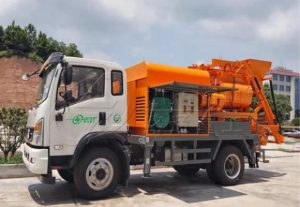Concrete vs asphalt, who is the winner? Concrete and asphalt are two kinds of common construction materials. What are their different characteristics? What are their advantages? Understanding the differences between them will facilitate us to make the reasonable material choices for different construction projects. Suitable materials lead us to perfect construction results.
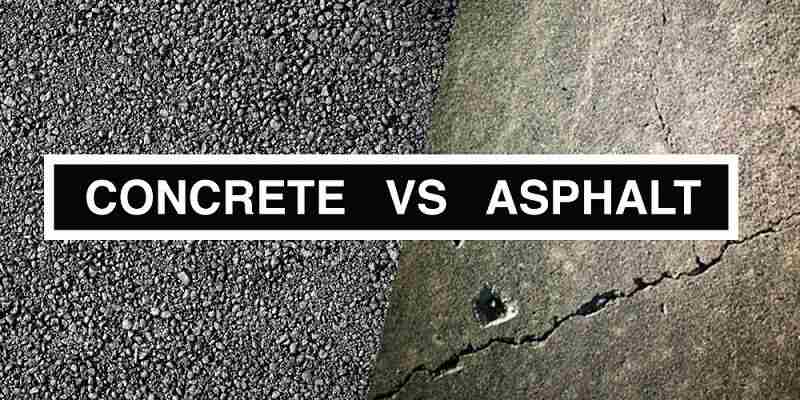
To compare concrete and asphalt and further understand the differences between them, we should start with their basic concepts.
What Is Concrete
Usually, the concrete refers to a composite building material. It is a mixture of cement (as gluing materials), sand and stone (as aggregate materials), as well as water and additive (according to actual needs) proportionally all together.
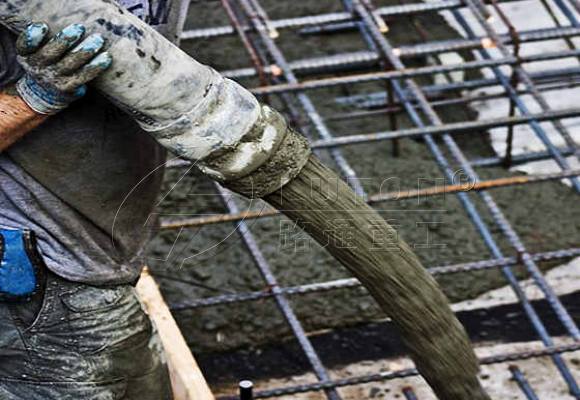
Main Component Of Concrete
| cement | different models for different project requirement |
| fine stone | limestone, quartz, feldspar, etc. |
| coarse stone | stone, gravel, basalt, glass, etc. |
| mineral powder | fly ash, slag, waterproof agent, etc. |
| water | the water proportion is various depends on the concrete products types |
| additive | different types for different actual engineering projects |
What Is Asphalt
Asphalt, narrowly defined, is an organic black high-viscosity gel material with good waterproof and moisture proof and corrosion properties. It has three types: coal tar asphalt (byproducts of coking), petroleum asphalt ( crude oil distillation residue), and natural bitumen (stored underground).
Usually, what we refers to as asphalt is a kind of black composite material. It takes asphalt as the adhesive material, with sand and other aggregate, fully mixed at high temperature.
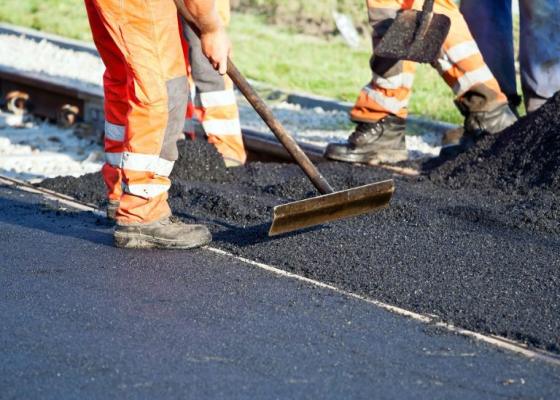
Main Component Of Asphalt
| Petroleum asphalt | a black glue extracted from petroleum, chemically derived from hydrocarbons |
| gravel | has different specifications according to particle size |
| sand | filling in the asphalt mixture, filling the gap between the gravel |
Concrete
- High strength, generally in 20-60Mpa, can withstand large load, meeting different engineering requirement.
- Good durability, can withstand the long-term environmental temperature and humidity changed brought by the impact, suitable for different environments for long time.
- Small thermal conductivity, with a certain thermal insulation performance.
- Small toughness, may appear the characteristics of sudden destruction of brittle materials.
- Fire resistance, not easy to bum, can provide better protection in the fire.
- Good construction performance, good fluidity, can be poured in different shapes of mold, can also be processed into various shapes.
Asphalt
- Good toughness, the semi-rigid material, not only can meet the requirements of strength, but also has a good flexibility, crack resistance. And it has a good rebound ability after deformation.
- Durability, corrosion resistance, and can withstand high strength impact and wear, long service life.
- Waterproof and moisture-proof: with good waterproof, can effectively prevent water penetration, isolation of moisture and moisture.
Concrete vs Asphalt In Application Areas
Concrete and asphalt have different characteristics, which determine their different application occasions.
Concrete
Concrete, or the concrete mixture, is widely used in construction, road, bridge, tunnel, dam, water conservancy engineering and other fields:
- The field Of Architecture
As one of the most common materials in the field of construction, concrete has good durability, stability and firmness. It can be seen in various buildings such as residential houses, apartments, high-rise buildings, villas, malls, school houses, gymnasiums, galleries and other buildings.

- Infrastructure
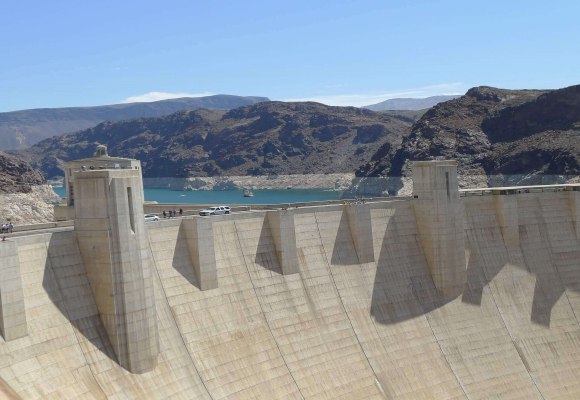
Concrete is waterproof and moisture-proof, solid and reliable. It is the main material of the infrastructure construction. It plays an important role in the construction of bridges, tunnels, dams and other water conservancy projects, urban and rural power supply facilities, drainage systems, environmental protection, etc.
- Industrial Field
Thanks for good fire resistance and corrosion resistance, concrete can be used in some chemical plants, oil refineries, power plants and other industrial fields.
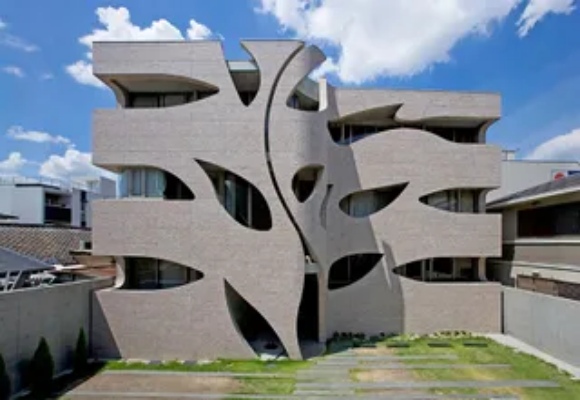
- Agriculture Field
Concrete can reinforce agriculture buildings such as livestock houses, barns and crop storage equipment.
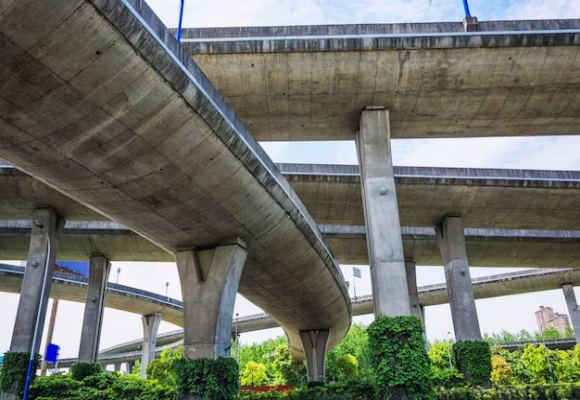
- Traffic Field
Concrete is one of the important road construction materials. It is suitable for constructions of the subway station, bus station, railway station and other station. Also it is the main material for edge guardrail, drainage ditch, roadbed, slope protection and other facilities construction.
Asphalt
- Road Construction
Asphalt is one of the main materials of hard pavement, with good durability and stability. It can withstand different traffic flow and climate conditions, and is the main material in the construction of high ways, urban roads, expressways and other grades roads.
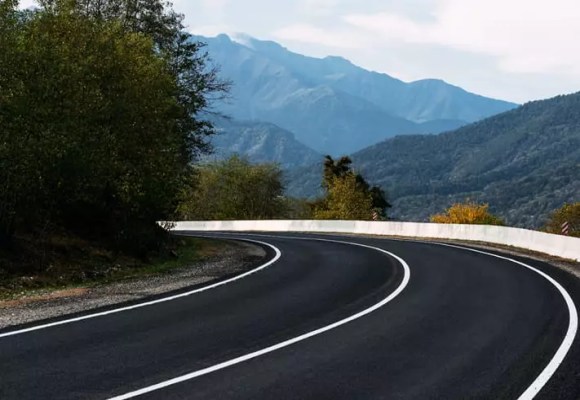
- Airport Construction

Asphalt mixture is also one of the main building materials of the airport runway and parking apron. Its construction speed is fast and can be laid in a relatively short time.
- Parking Construction
Asphalt material can also be used as parking lot construction materials, choosing different particle grading and asphalt mix ration, can adapt to the different requirements of the parking lot.
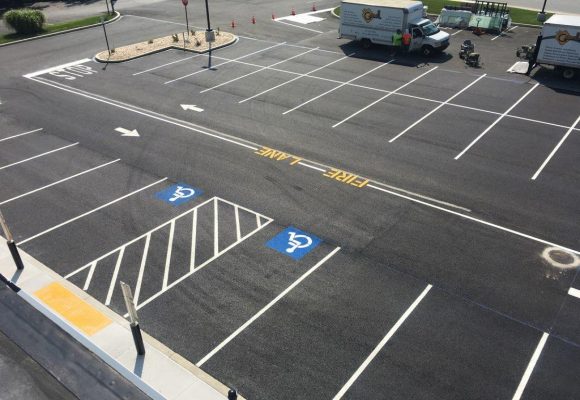
Differences Between Concrete Road And Asphalt Road
Concrete and asphalt both can be used as road pavement material. There are some same properties in the two road pavement materials. For example, they both take sand and stone as important mixing component. The only component difference is the gluing material, one is cement, the other is asphalt raw material.
This little change has led triggered the differences between the two finished paving materials. See concrete vs asphalt in road pavement.
| Concrete Road | VS. | Asphalt Road |
| Good durabilitylong service life 50+ years | Durability | The service life is relatively short and requires regular maintenance and replacement 30+ years |
| Large rigidity, can withstand a large bending tensile strength | ElasticityAndRigidity | Strong elasticity and crack resistance, can adapt to changing traffic loads and climatic conditions |
| Good stability, not easily affected by temperature and climate change | Stability | With a certain stability, in a certain range, not easy to be affected by the environmental temperature and climate change. |
| The construction is difficult, needs a longer construction cycle, the road hardening time is longer, can not be quickly put into use. | Construction Speed | The construction speed is fast, it can be completed in a short time laying, and quickly put into use. |
| Repair is difficult, and the repair cost is high. | Maintenance | The repair speed is fast, the efficiency is high, and the asphalt pavement material can be recycled, and the cost is lower. |
| Large noise, weak shock absorption, driving comfort is poor | Driving Comfort | Strong shock absorption, good driving comfort, low noise |
| When the temperature changes, concrete will experience thermal expansion and contraction, which has a small impact on the quality of the project. | Weather and Environmental Impacts | It is greatly affected by environmental temperature. At low temperatures, the bonding strength of asphalt concrete will significantly decrease, which may lead to cracking and other problems. At high temperatures, plastic flow is prone to occur and can also affect the laying quality of asphalt concrete. |
Prices Comparison Between Concrete And Asphalt
Concrete vs asphalt, they both have unique characteristics and advantagesand, and can meet the needs of different road construction projects, with varying prices.
In general, in China, the cost of concrete pavement is twice that of asphalt pavement. Calculated by per cubic meter, asphalt mixture costs 1000 to 1200 yuan, while concrete pavement only cost 500 to 600 yuan. Calculated by thickness, the cost of an 18cm thick asphalt pavement highway road is 180 to 240 yuan per square meter, while a 28cm thick concrete pavement only costs 90 to 120 yuan per square meter.
In terms of materials alone, compared to concrete products of the same quaulity, asphalt material is usually more expensive, which is caused by various reasons:
Parts
Firstly, asphalt machinery is more expensive than concrete machinery.
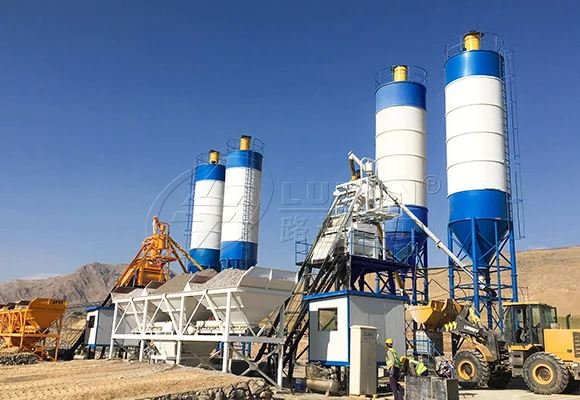
That is because the asphalt plant parts are more complex than the concrete plant parts. In addition to the same parts as concrete plant, like aggregate batching machine, belt conveying machine, powder storage silo, mixing equipment, there are also vibrating screen equipment, asphalt heating and drying equipment, hot aggregate storage equipment, finished product storage equipment, etc.
What’s more, the concrete pumping and pouring machine is cheaper than asphalt pavement machinery.
Manufacturing Process
Secondly, the manufacturing process of asphalt material is also relatively complex.
Based on the characteristics of asphalt itself, the production process of asphalt mixture is actually a hot mixing process. While, the concrete mixing station is not. It does not need to dry and heat the material, all the materials can be directly mixed, the production process is relatively simple.
In addition, as the cemented material of asphalt mixture, asphalt raw material needs to be kept in the liquid flow state to participate in the mixing process, which increases the complexity of the production process of asphalt mixture.
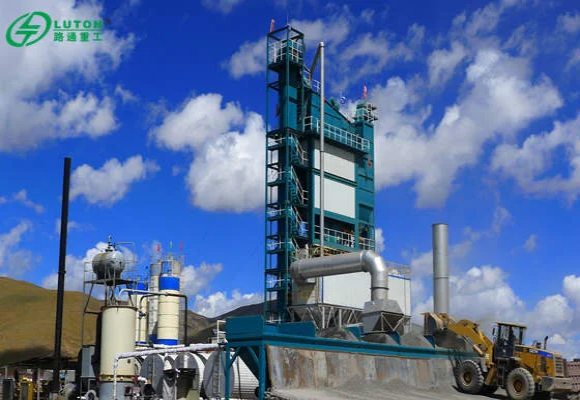
Operation Cost
What’s more, to the daily operation of production, asphalt station costs more.
The main power sources of the aggregate batching system, material transmission system, mixing system and dust removal system in the concrete plant and asphalt plant are all electric power.
However, where electricity is used in asphalt plant is not limited to that. There are also vibrating screen system, asphalt storing and supplying system as well as material drying system drove by electric power. Of course, the latter two systems may also use other fuel energy sources, such as natural gas, natural gas, fuel oil and so on. Obviously, the daily energy cost of asphalt plant is greater than that of concrete plant.
Site Requirement
Thirdly, the site required for building the asphalt plant is relatively larger.
Because the scale of asphalt plant equipment is usually relatively larger, so the area of the whole station is larger. So, this requires more site investment.
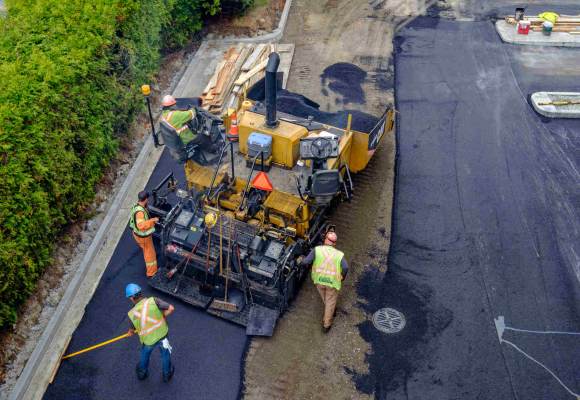
Summary
Concrete vs asphalt, they are different in terms of structural composition, production process, characteristics, applications, usage and maintenance, material costs, etc. They have their own characteristics and play their unique roles in different construction fields, and are indispensable building materials.
For more informantion about concrete or asphalt machinery, you’re welcome to contact us – LUTON GROUP – we are concentrating on concrete machinery manufacturing and exporting for more than 25 years.
Hot Models Of LUTON Concrete Pump
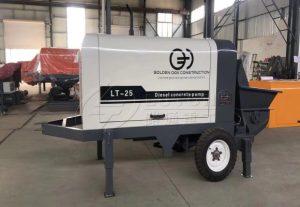
Mini Concrete Pump
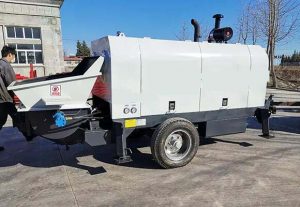
High-Pressure Concrete Pump
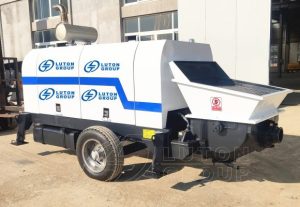
Concrete Trailer Pump
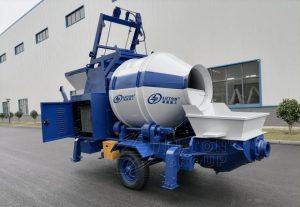
Concrete Mixer Pump
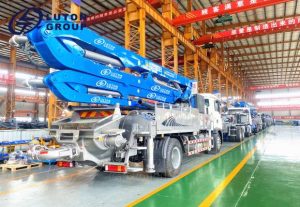
Concrete Boom Pump
